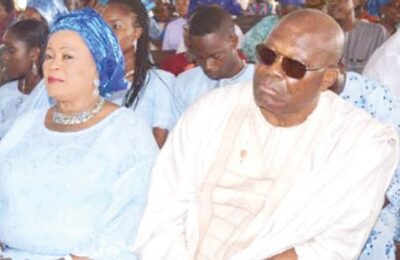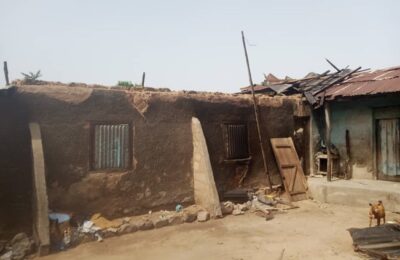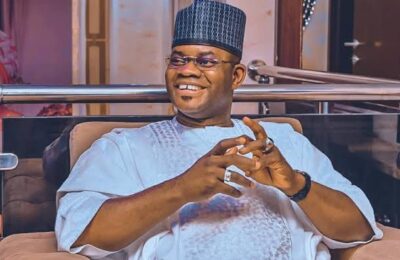Protocols.
Introduction
When I received a relatively short notification to prepare a speech with respect to this important conference, I never knew where exactly to begin, considering the complex nature of challenges confronting the nation at the same times and from different directions.
Although, the theme of this conference ”Fairness, Equity and Justice: A Panacea For Peace, Unity and Development” encapsulates the intended objectives of the organisers from the view point of what the conference was designed to address, but I doubt if a meeting of this kind could address all sufficiently.
I want to thank all the participants and organisers of this event for not only taking time to be at this conference but also for harnessing limited resources together to actualise it despite numerous setbacks. I hugely appreciate for giving me opportunity to contribute on this occasion.
The problem of insecurity, taking a clue from the theme of this conference, I understand that we are here to talk about development and its ingredients because one cannot survive as a stand-alone without the others in the society.
Obviously, in Nigeria of today, there are problem of crime and insecurity such as kidnapping, armed robbery, banditry, insurgency and rape. There is aggravated issue of youth unemployment, bad economy, and governance crises making it almost mandatory for Nigerians to walk on a troubled road to peace.
Over the past couple of months, Nigerians had been confronted with expression of one frustration or the other as in EndSars protests in reactions to the perceived brutality and abuse of human rights by the nation’s providers of security; and its associated exploitation by hoodlums and the anti-establishment agents to hijack the intended peaceful protests to their advantages. This situation has snow-balled into destruction of lives and property worth billions of naira in a country that was still struggling to survive the economic recess. As a consequence, the country is currently walking on a troubled road to peace and development, unless we realised ourselves as a nation and collectively take actions as much as possible.
This time, it is not only about addressing bad leadership but also about addressing bad follower ship. The President Muhammadu Buhari led government was re-voted in 2019 to serve for another four year term in the light of general satisfaction expressed by the citizens and their resolve to allow his government to take the country to the next level. However, it will amount to self-deceit and efforts in futility if he was expected to perform alone without collective support of all and sundry.
The Research-driven Approach to Peace
Whilst I am not by any standard a prophet, but I foresaw this magnitude of safety issues in Nigeria coming as far back as ten years ago. In particular, as an academic with Kogi State University Anyigba, Nigeria in 2010, I developed a research proposal about community policing, which achieved funding (overseas scholarship) from the Federal Government of Nigeria Tertiary Education Trust Fund (TETFUND) in 2011. I completed the doctoral research entitled ”Community Policing: Exploring the Police/Community Relationship for Crime Control In Nigeria” in 2016, premised on interviews with about thirty police and forty community participants in Kogi State of Nigeria at the University of Liverpool United Kingdom.
To quote my external examiner:
“…The research at its most basic certainty would lead us to question the value of the UK-DFID (and all the western) initiatives and investments in police reform programmes that are overwhelmingly based on UK-US experience and structures. The thesis provides ample evidence of the potential futility of external reforms to policing where existing cultures, attitudes and experiences were always likely to undermine their implementation. It is a highly persuasive and ultimately devastating critique of current police practice which should be widely made available to western governments who seek to apply their own domestic reforms in what is a less than receptive environment…”
I graciously authored Police Corruption and Community Policing in Nigeria A Sociological Case Study published in 2018, in which I developed Ochamalienwu (Squirrel Whining) Theory of Community Policing. A peer review of the work dated 16th November 2020 by Journal of Criminological Research Policy, and Practice(JCRPP), United Kingdom stated that:
”The ‘Squirrel Whining’ theory of community policing was theoretically interesting in providing a context for the perceptions, reporting, and policing of crime, and set the connection to communication between the community and police as integral not only to building trust between them, but also to crime reduction and safety.”
The theory provides critical explanation and understanding about the nature, dynamics and risk factors about community policing in global context and suggestions to solve problems. Community policing from the perspective of Ochamalienwu (Squirrel Whining) theory provides contexts for communication between the people and their security providers.
The theory prescribes for a cultural context whereby everybody takes the role of a police in the society regardless of class, status, location, and age. But its efficacy is rested on ensuring social equality but not inequality, openness but not closeness, achievement orientation but not ascription, democracy but not autocracy, respect for human rights but not impunity, civility but not crudity, and equal rights and opportunity to all.
Community policing is fundamentally anchored on the extent to which the government and the citizenry embraced the fundamental tenets of social justice, equity and fairness in resources distributions.
The theory has being undergoing further development and receiving series of peer reviews by scholars and for community policing policy and practices by governments and international organisations across the world.
My research has received commendation by the Presidency and is recognised by Nigerian government and Danish Refugees Council (DRC)/Danish Demining Group (DDG) Copenhagen, Denmark for community policing policy and practice. I graciously received nomination for the 2020 Tallberg Elliasson Foundation Leadership Prize in Stockholm, Sweden and recognised as ”one of great leaders working hard to move the world from what it is towards what it could be” and awarded Distinguished Polio Award 2020 by Rotary International Organisation for contribution of my work to illuminate understanding and provision of enabling environment for Polio advocacy programmes to thrive etc.
Conclusion
Your Excellencies, distinguished ladies and gentlemen. Although, it is saddening to note that security of lives and property in Nigeria is witnessing politicisation at various levels, the good news is that Nigerian government has approved a research-driven community policing policy in 2019 and have also commenced implementation.
However, getting the desired results is not only largely determined by the quality and accuracy of the implementation process in the country but also the level of cooperation, and support of the entire citizens who are the beneficiaries of the crime reduction and the community safety programmes in the country. I think this demonstrates the essence of this conference tonight in the Nigeria quest for peace and development.
I thank you all for your time.
– Dr Aminu Musa Audu is a UK-based Nigerian sociologist/researcher and police expert.
Being A Speech At The Conference Themed: ”Fairness, Equity and Justice: A Panacea For Peace, Unity and Development”, organised by The Presidential Support Committee, The Presidency, Abuja, The Federal Capital Territory, Nigeria held on 11th December 2020.




